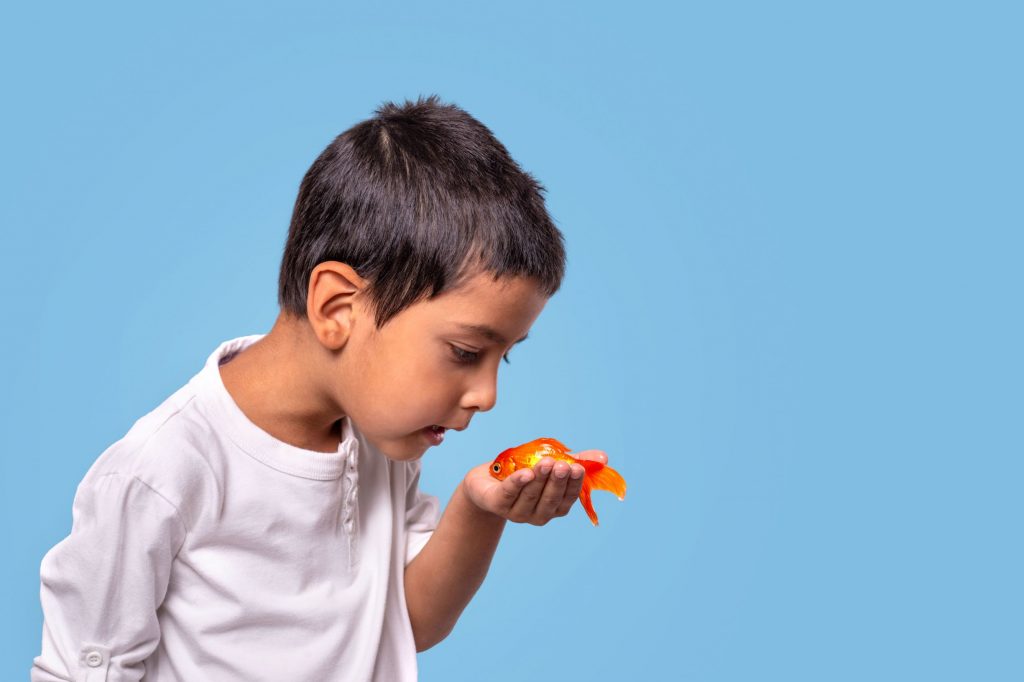It seems every child had a goldfish growing up. The child may have given the fish a sweet little name and fed it every day like clockwork – maybe even a little too much. The child likely loved the little pet right up until the day the fish took its final breaths … within about a week after bringing it home.
The fact that goldfish are a favorite first fish in many households is rather ironic. They may be inexpensive and easy to handle at first, but truly they are not the easiest to care for overall.
Why Goldfish are Not Ideal for Beginners
1. The common home for a child’s goldfish is often a little fish bowl, but that’s not ideal. Because many goldfish can grow to almost 8 inches long, the bowl will cramp the fish’s style quickly.
2. Fish bowls are difficult to keep clean. Because it is small, a fish bowl can become saturated with ammonia quickly, suffocating the goldfish. Depending on the age of the child, a parent or other adult will likely need to help the child keep the bowl clean.
3. Goldfish need more oxygen than some other fish, and that’s much more than homeowners may realize. At the same time, fish don’t enjoy living their lives in one spot and would prefer to be able to swim around. That means an ideal goldfish fish tank is wider than the surface of a fish bowl, which would enable it to move around freely while at the same time coming up for air when it needs to.
4. Water needs to keep moving in order to create the much-needed oxygen and keep the water clean. A fish bowl simply isn’t adequate for that type of environment, even if you do add plants and air stones into the water.
5. Goldfish secrete more waste than some other fish. For that reason, even keeping an adequate-sized fish tank clean would be a challenge.
Add all of these factors together, and it’s a recipe for disaster. But there’s a bright side.

A goldfish may be challenging to maintain for beginning hobbyists, but if your child’s wish is to have a goldfish, the pet can live a long and happy life if the child learns proper fish tank maintenance skills.
Species of Fish that are Good for New Hobbyists
With the proper education and care, your child’s goldfish doesn’t have to be another statistic. In fact, some goldfish can live up to 20 years! It could stay with your child well into adulthood.
If you would rather not deal with goldfish altogether, there are many other species of fish that are much better for beginners. Here are just a few.
- White cloud minnows
- Danios
- Swordtail fish
- Certain types of tetras
- Certain types of bettas
- Platies
- Guppies
- Pearl gouramis
- Plecos
Contact us for more information about setting up a child’s first fish tank and additional facts about the ideal livestock for it.




